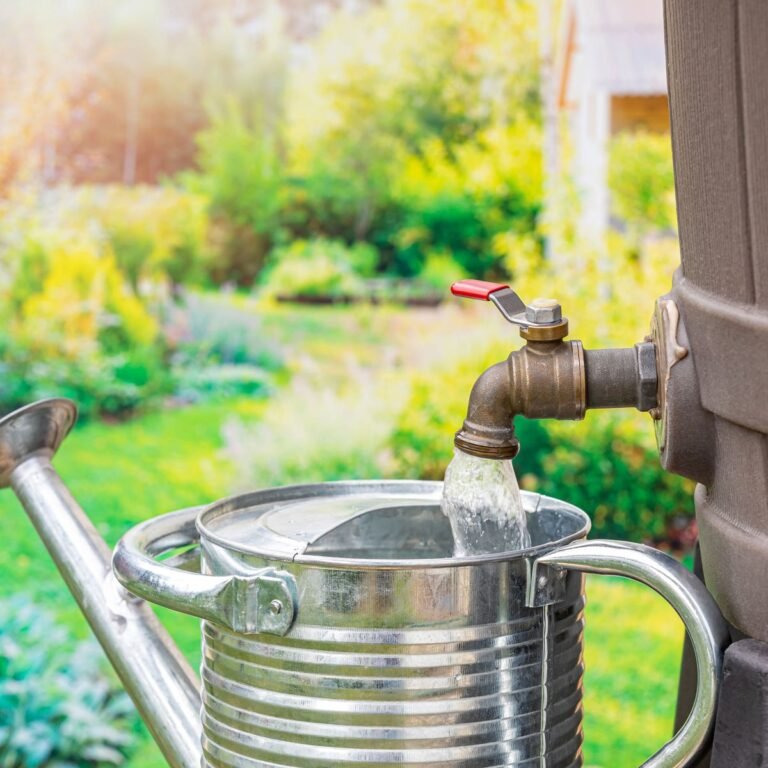With sustainable gardening Rainwater harvesting is becoming more important than ever, and is one of the easiest ways to be more environmentally friendly while still caring for your own little piece of heaven on earth. Investing in a rainwater conservation system such as a water barrel or rainwater tank is well worth the investment, and once they are set up, they require little maintenance. But you may be wondering what are the main benefits of water barrels and rainwater tanks?
From boosting natural water storage during dry weather to preventing runoff when the rain comes, we round up the key reasons why water tanks and rain barrels can help you be more sustainability-smart.
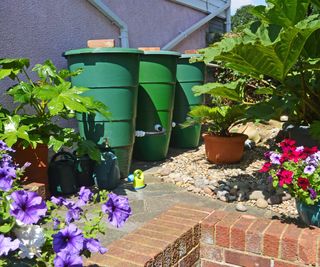
(Image credit: Justin Kase z12z / Alamy)
How rain barrels and water tanks work
Some gardeners who want to be more sustainable may ask, ‘What is a water barrel?’ Simply put, a water barrel is a container used to collect rainwater. This term is more commonly used in the UK than in the US. In the US, most people refer to this type of device as a rain barrel. However, it does not have to be a barrel. Any container designed and used to collect rainwater is good for collecting rainwater and you can make rain barrel or buy them.
In their simplest form, these large containers collect water from your home’s drainpipe. A tap at the bottom of the container allows you to access the water as needed. These containers can be more complex, depending on your needs, the size of your garden, and your budget, but even the simplest containers can do the job.
Benefits of Using Rainwater Barrels and Water Tanks
Obviously, one of the main benefits of collecting rainwater is the opportunity to create a more sustainable outdoor space. But it might help to break this down a bit, to see some of the specific environmental benefits of water tanks and rain barrels. Here are five positive reasons why a sustainable garden can benefit from using water tanks and rain barrels. Just be aware that collected rainwater is not considered safe to drink!
1. Reduce water runoff
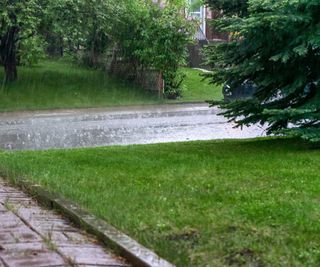
(Image source: Brian Kennedy / Getty Images)
Most stormwater is runoff in urban and suburban areas. The closed surfaces of roads, driveways, and parking lots cause water to flow into the sewer system instead of soaking into the ground. Up to 90% of stormwater becomes runoff. Excessive runoff washes pollutants (such as fertilizers and pesticides) into the sewer system and overloads the system, which can lead to pollution problems. Can divert overflow Therefore it is very important. Harvesting rainwater allows you to use water more efficiently, reducing runoff.
2. Reduce emissions
Overloaded sewer systems mean a lot of water has to be treated. This requires energy and contributes directly to carbon emissions. If you can reduce the load on the system, you will also reduce your carbon footprint.
3. Reduce erosion and flooding
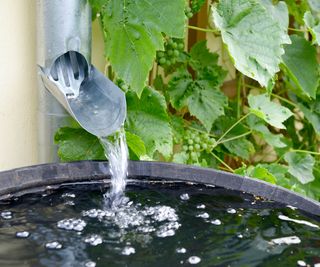
(Image source: Schulzie / Getty Images)
Stormwater runoff is a powerful force, especially after a major storm or heavy rainfall. Even small amounts of rainfall over time can increase erosion. Runoff increases soil erosion and Erosion control Using water tanks and rain barrels means you can capture some of that rainwater, thus reducing the risk.
Obviously, heavy rainfall with high runoff also has the potential to cause damaging floods. Any effort to reduce runoff can reduce the severity of flooding.
4. Groundwater support
Many municipal water systems over-extract groundwater, depleting important reservoirs. By harvesting rainwater, you ease this burden. Using rainwater collected from water tanks and rain barrels to irrigate your yard and garden will also replenish those reservoirs.
5. Keep plants healthy
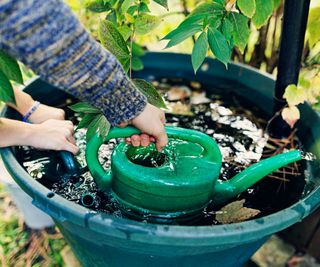
(Image source: Imgorthand / Getty Images)
It is better for plants to water with rainwater. It is their natural way of getting water anyway. Most rain water has a balanced pH that plants prefer. It also does not contain chemicals found in tap water used to treat water. Using stored rainwater means you can keep your plants hydrated during droughts and dry weather, helping to maintain balance in a more natural way.
frequently asked Questions
Are there any financial benefits from collecting rainwater?
The benefits of rain barrels are primarily environmental. For anyone interested in growing more sustainably, rain barrels are an obvious win-win. However, when you save rainwater for use in your garden, you also save money – because you’re taking some of the strain off your domestic water supply.
You can use rainwater for anything you would normally use a hose for. In addition to watering your plants, you can also use it to wash your car, saving you a lot of tap water.
